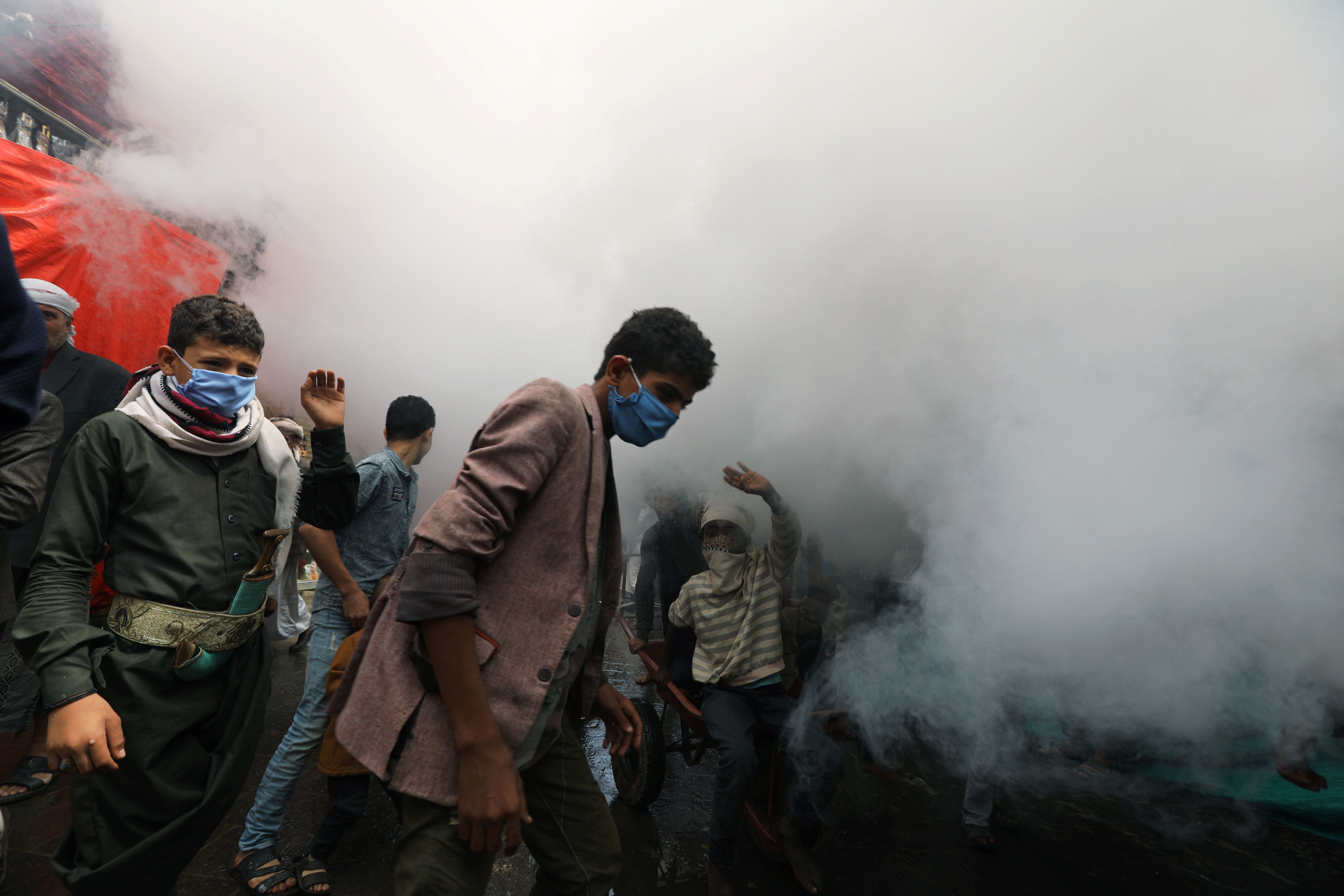Coronavirus Politics Daily: Yemen's new cluster, South Korea hits zero, and is Sweden a good model?
Yemen's COVID cluster: Growingconcerns about the coronavirus reaching some of the world's most vulnerable populations are playing out this week as Yemen's port city of Aden reported its first cluster of cases. Although the country has recorded only a handful of cases overall, the UN says that given the near absence of testing, the disease is likely spreading undetected, and has issued a new call for an immediate ceasefire in the five-year civil war between Iran-backed Houthi rebels and Saudi-backed coalition forces, in order to deal with the pandemic. We note that a similar call from the UN Secretary General last month still hasn't had much effect. A COVID-19 outbreak is just one of many woes facing Yemen, one of the poorest countries in the world, which has faced a deadly cholera outbreak in recent years and unprecedented levels of hunger,with some 24 million people relying on some form of aid to survive. The combination of a shattered healthcare system and zero testing capacity against the backdrop of constant conflict places Yemen in a uniquely dangerous situation.
South Korea hits zero:No new locally-transmitted cases of COVID-19 have been recorded in South Korea for the first time in ten weeks. South Korea was one of the first countries outside of China to report a coronavirus outbreak, and has since emerged as a global model for containment, using thorough contact tracing, social distancing measures, and widespread testing to curb the disease's spread. The country even managed to pull off a seamless parliamentary election on April 15, in which at least 66 percent of eligible voters took part without anyone contracting the disease. (Compare that to the Wisconsin presidential primary, in which at least 52 voters or poll workers got sick with COVID-19 at polling stations, according to health officials in that state.) Still, South Korean authorities are keeping a close eye on what happens during several holidays that are approaching – including Buddha's birthday, May Day, and Children's Day – in which people often travel or visit family members.
Who wants to be Sweden? Ascountries around the world debate when and how to reopen their economies, many are looking to the example of a place that hardly even closed its own. Sweden, rejecting the drastic lockdowns seen elsewhere in Europe, has closed universities and banned large gatherings, but left elementary schools, bars, and restaurants open, while asking the Swedish people to observe social distancing practices on their own. Has it worked? Compared to Nordic neighbors with stricter lockdowns, Sweden's rate of 24 deaths per 100,000 people is high: Denmark's is just 7 deaths per 100,000, while Norway's is a scant 3. But Sweden's rate is still lower than those of heavily locked-down countries like Italy, France, and Spain. There are two things to remember as the Sweden debate rages: first, lockdowns are meant primarily to slow the speed of the outbreak, so that hospitals aren't overwhelmed – Sweden's have not been. While critics say Sweden has needlessly let people die, supporters say the government smartly front loaded the inevitable fatalities without crushing its healthcare system or its economy. Second, Sweden is a unique case: it's a country with superb public healthcare (for all), relatively high trust in government, and one of the second highest work-from-home rates in the world. In other words, unless you are Sweden, DON'T TRY THIS APPROACH AT HOME.
